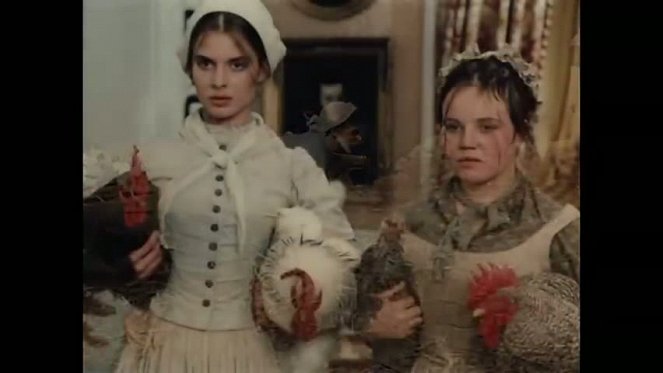Directed by:
Roman PolańskiComposer:
Philippe SardeCast:
Nastassja Kinski, Peter Firth, Tom Chadbon, Leigh Lawson, Richard Pearson, Suzanna Hamilton, John Barrett, Pascale de Boysson, Arielle Dombasle (more)Plots(1)
Roman Polanski's critically acclaimed adaptation of Thomas Hardy's novel stars Nastassia Kinski as the ill-fated peasant girl whose beauty is both her fortune and her undoing. Exquisitely photographed and brilliantly acted, Tess explores the painful cruelty of love to create a modern masterpiece. (British Film Institute (BFI))
Reviews (2)
The three Oscars won accurately reflect the strengths of the film. The excellent production design that transports the viewer to England in the second half of the 19th century, convincing period costumes that evoke a sense of absolute authenticity, and the traditionally reliable camera are all typical pillars of Polanski's films. This director has been one of my favorites from the beginning and I'm used to him usually piquing my curiosity and guaranteeing my attention. That is, until now... Unfortunately, the nearly three-hour runtime is noticeable. In terms of drama, the film functions significantly worse, and I would attribute that to Thomas Hardy. The classic English author wrote novels for a different time, and I admit that although I managed to decipher Russian classics in my time, I could only read Hardy with a gun pressed to the back of my head. Turning it into a three-part miniseries would have been much more suitable for adapting a novel with only minimal strong emotional scenes. Nastassja Kinski is charming, innocent, romantic, appropriately naive, and simple-minded in the role of a Victorian girl. Tess and her chosen one are portrayed by Hardy as nothing more than helpless victims of Victorian prudish official morality (of course, there was also its other side, probably never so distinctly shown anywhere as the stark difference between publicly proclaimed restraint and taboos on sex and base reality. In London at the time the novel was published, one prostitute accounted for every seven men, and it was no different in other urban centers like Manchester or Liverpool). However, from Hardy, who had a tendency to idealize society and especially the countryside, nothing else can be expected. It has never happened to me before, with Polanski, that I would even momentarily consider giving a film of his only two stars, but I was unable to watch Tess in one sitting, which speaks for itself. The film fails to evoke stronger emotions and unfolds predictably, perhaps with the exception of the completely unnecessary violent death in the inn room, which, however, seems absurd in the context of the story. In his attempt to do the best job possible, Polanski somewhat fell into the trap of film academism, but so be it, I forgive him. Overall impression: 55%.
()
Another Thomas Hardy story that made me want to shoot myself. It’s either film therapy or Victorian logic for the advanced. However, with the passage of time, I return to Hardy in many guises, and I will always see Tess through the prism of Polanski's tragedy. Alas. Even though the truth is that the story of the abused Tess would have been enough of an identity crisis on its own without the Manson crew of imbeciles.
()

